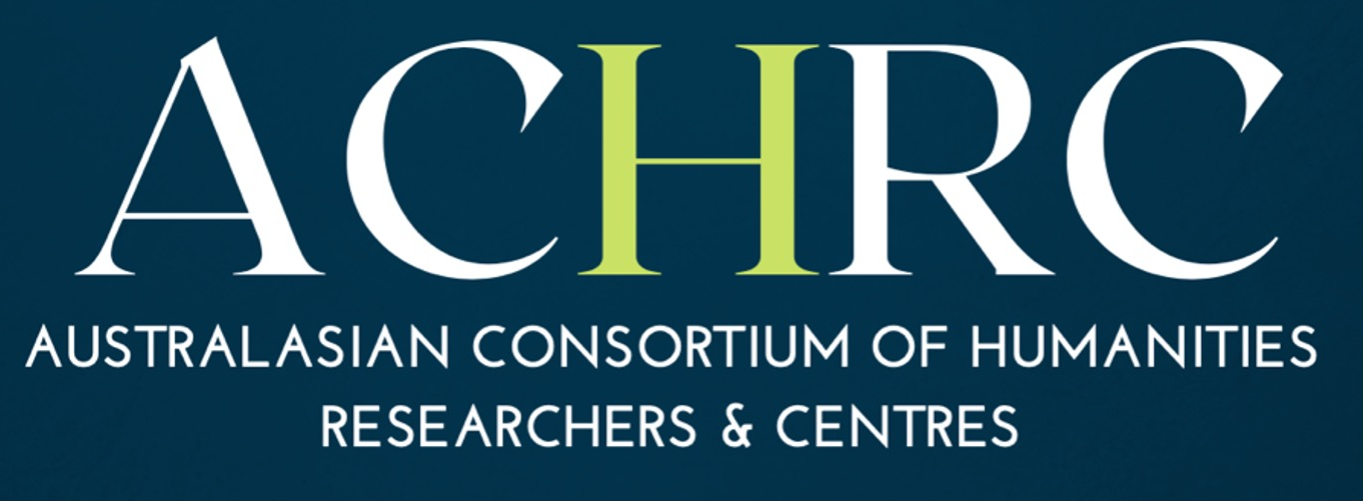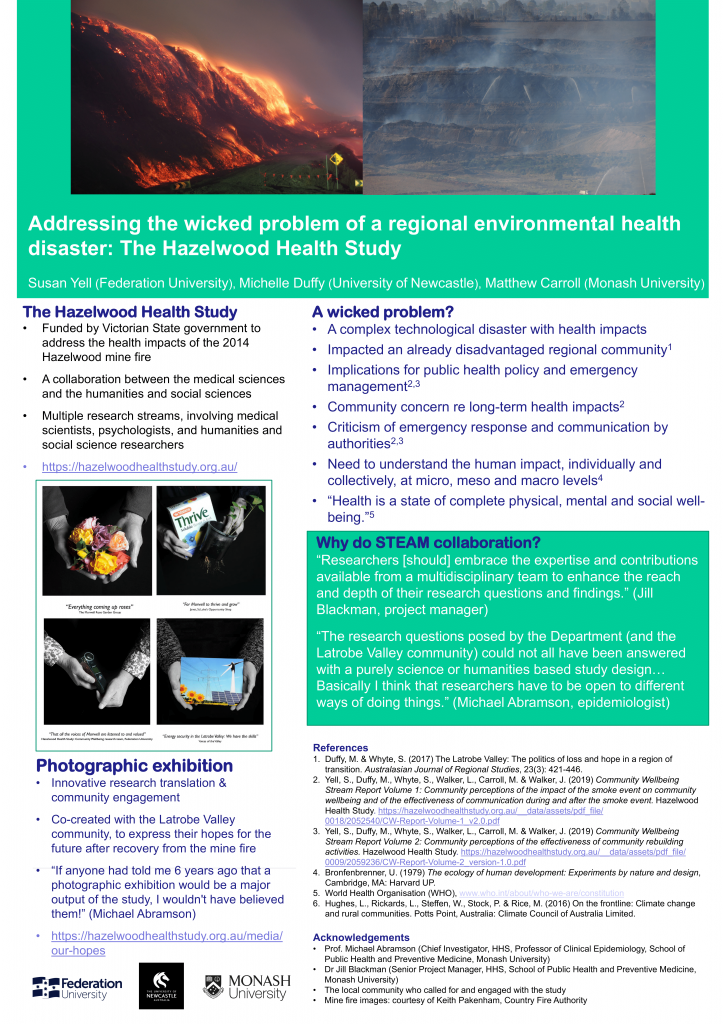Susan Yell (Federation University), Michelle Duffy (University of Newcastle), Matthew Carroll (Monash University)
The Hazelwood Health Study was funded by the Victorian State government to address the health and wellbeing impacts of exposure to smoke from the Hazelwood mine fire, which started as a bushfire in the Latrobe Valley near Morwell, Victoria, and spread into the adjoining open-cut coalmine. The fire burned for six weeks in 2014, shrouding Morwell and neighbouring communities in smoke and ash. This poster focuses on the benefits and significance of doing STEAM research in the regions.
Wicked problems such as those brought on by climate change are usually experienced first and most acutely in the regions (Hughes et al 2016). This collaboration across the humanities and the medical and psychological sciences brought together different frameworks to understand the human impact of the mine fire, in ways that either a science-based or humanities-based approach alone could not achieve.
The humanities stream of research within the study enabled the medical findings to be situated within a prior context of socioeconomic and health disadvantage (Duffy & Whyte 2017). It helped inform the recruitment strategies for the epidemiological research methods, and enhanced community understanding of and engagement with the study.
We argue that combining a science lens with a humanities lens enabled a focus on the micro through to the macro impacts of this disastrous event. Epidemiological methods and medical science contributed macro and micro perspectives: macro through connecting population level datasets and to modelled smoke exposure estimates; and micro through the collection of individual cardiovascular, respiratory and mental health data on the impacts of exposure. Qualitative humanities research gave a meso perspective bridging the macro and the micro, by analysing community narratives which gave sense to and framed the lived experience of the community, of health and mental health impacts as well as impacts on the wider social networks and communication ecology of the community.
Bibliography
Duffy, M. & Whyte, S. (2017) The Latrobe Valley: The politics of loss and hope in a region of transition. Australasian Journal of Regional Studies, 23(3): 421-446. https://www.anzrsai.org/assets/Uploads/PublicationChapter/AJRS-23.3-pages-421-to-446.pdf
Hughes, L., Rickards, L., Steffen, W., Stock, P. & Rice, M. (2016) On the frontline: Climate change and rural communities. Potts Point, Australia: Climate Council of Australia Limited.
Presenter Biographies
Dr Matthew Carroll is a Senior Research Fellow with Monash Rural Health in the Latrobe Valley. Dr Carroll is Co-Principal Investigator of the Hazelwood Health study and leads the Psychological Impacts stream of this Study as well as contributing to the Community Wellbeing stream. He has been heavily involved in the design, establishment and management of the study. He has previously conducted research looking at the impacts of climate change and the 2009 Black Saturday fires.
Michelle Duffy is Associate Professor in Human Geography at the University of Newcastle. Prior to this she worked as a Senior Lecturer in Sociology at Federation (Gippsland) and Monash (Gippsland) Universities, and Lecturer in Australian Studies, Australian Indigenous Studies and Human Geography at the University of Melbourne. She has extensive experience in tracking community-level responses to major events, having previously led the Hazelwood Health Study’s Community Wellbeing stream and continues to contribute to the research program.
Dr Susan Yell is a senior lecturer in Humanities at Federation University, Gippsland Campus. She is a communications scholar who uses qualitative methods including content analysis and discourse analysis to research media, emotions and disaster communication. She publishes on the reporting of historical and contemporary bushfires, media coverage of national versus international disasters, historical shifts in the emotional response to disasters, and social media use during disasters. As lead researcher in the Community Wellbeing stream of the Hazelwood Health Study, she is currently researching community wellbeing and resilience, media and social media use in disaster recovery, and effective disaster communication.

